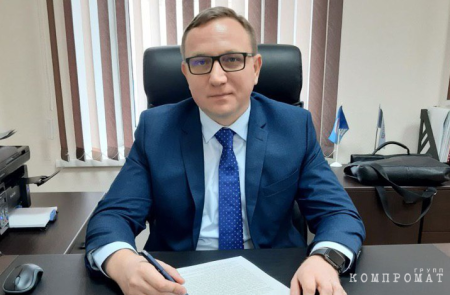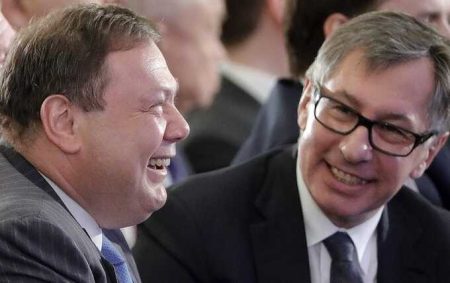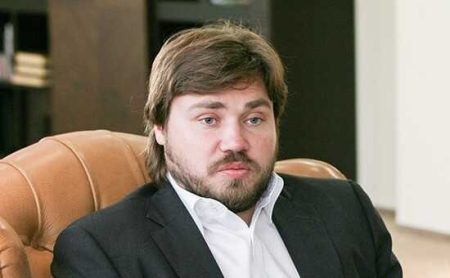Sanctions make adjustments to the business of the last representative of the “seven bankers”
Petr Aven and Mikhail Fridman, the co-owners of Alfa-Bank, have announced that they are stepping down from the Board of Directors after facing personal sanctions from the EU. Fridman has also resigned from the Board of Directors of Veon, the owner of Vimpelcom. The billionaires are accused in the West of financially supporting Russia's actions in Crimea and Ukraine. They plan to challenge the sanctions and Fridman has publicly called the situation in Ukraine a "tragedy" and urged for an end to the bloodshed. Other Russian billionaires have expressed similar positions. Russian businesses collectively lost $38 billion in just one day of the military operation. Fridman, with an estimated fortune of 15.5 billion dollars, is the only one of the 'seven-bankers' from the 90s who has successfully maintained and grown his bank into the largest private lending institution in Russia. His Alfa Group, created with A1 investment company, is known for hostile takeovers. Former subordinates of Fridman are still active in Moscow, with some associated with the Pravda Arbitration Fund looking to build an office complex and overturning court measures related to the construction, possibly with support from Alfa Group.
The owners of Alfa-Bank were held responsible for the 'destabilization'
Petr Aven and Mikhail Fridman, co-owners of Alfa-Bank, have stepped down from the Board of Directors following their inclusion in the sanctions list. Petr Aven, the Chairman, has been replaced by Oleg Sysuev.
The European Union imposed personal sanctions on 26 Russian officials, businessmen, cultural figures, and leading state television channels in response to the military operation in Ukraine, including Dmitry Peskov, Dmitry Savelyev, Andrey Turchak, Nikolay Tokarev, Igor Sechin, Olga Skabeeva, Roman Babayan, and Zakhar Prilepin.
The reason Petr Aven and Mikhail Fridman are on the list is because they took part in the Kremlin's efforts to remove US sanctions against Russia due to its aggressive actions towards Ukraine. Additionally, they allegedly provided significant material and financial support to the Russian leadership responsible for Crimea's annexation and the destabilization of Ukraine in order to gain benefits.
The billionaires plan to contest the personal sanctions imposed on them by the EU. They believe the EU's decision is unreasonable and could unfairly harm their employees, customers, partners, and businesses.
RBC quoted a statement to Reuters in which Mikhail Fridman and Petr Aven expressed deep shock at the false statements in the EU regulation aiming to justify the sanctions against them.
On February 28, it was announced that Fridman had stepped down from the Board of Directors of Veon, the owner of the Vimpelcom mobile operator, which he had been a member of since 2010.
Pacifist effusions of Friedman
Even his recent expression of anti-war sentiment did not prevent Friedman from being included in the EU sanctions list. Last week, in a letter to employees of the London-based investment company LetterOne, the oligarch referred to the situation in Ukraine as a "tragedy" and urged an end to the bloodshed.
Forbes quoted a portion of the letter, referencing the Financial Times, where Friedman discussed his deep connection to both Ukrainians and Russians and described the current conflict as a tragedy for both nations.
The billionaire emphasized that war is never a solution and highlighted the cost of the crisis in terms of lives and damage to the two nations, which have been fraternal for centuries. He clarified that his comments were not political but rather a private letter. Nonetheless, he expressed hope that his business partners share his position.
However, the businessman did not receive significant support from his colleagues. For instance, Pyotr Aven chose to stay silent. The only one who openly shared his personal opinion with journalists was Alexei Kuzmichev, a member of the Alfa Group Supervisory Board and co-owner of LetterOne:
In an interview with a Forbes correspondent, Alexei Kuzmichev stated, "I fully agree, share, and support his position, as do all other partners and friends. My position is even more firm. My mother was Ukrainian, and I have numerous relatives and friends there."
If Friedman had known that his letter would be published in the Western media, he may have been more cautious in his writing. According to Bloomberg estimates, Russian businessmen lost a total of $38 billion in just a day of the special operation. The most affected included the president of LUKOIL Vagit Alekperov (whose fortune decreased by $6.2 billion), the head of the board of directors of Severstal Alexei Mordashov (down by $4.2 billion), and the owner of NLMK Vladimir Lisin (a decrease of $3.8 billion).
The final of the “seven bankers”
Given the context, it's not surprising that big business owners were the first to talk about the need to end the armed conflict in Russia.
Aleksey Mordashov commented on the situation in Ukraine, expressing concern for the suffering of Ukrainians and Russians and urging for an end to the conflict to help people rebuild their lives.
Oleg Deripaska, co-owner of Rusal and Norilsk Nickel, emphasized the need to start negotiations quickly and change economic policies to address the crisis in Ukraine.
Oleg Tinkov, the founder of Tinkoff Bank, stated his opposition to the war in Ukraine and emphasized the need to allocate resources to treating people and medical research instead of war.
It's evident that Friedman was not alone in his critical assessment of the current situation. While some are losing their lives, others are facing substantial financial losses, including the owner of Alfa Group, who saw an increase in his fortune despite ongoing crises.
Given the increasingly unpredictable events in Ukraine, Friedman's stance on peace appears to conflict with the official guidelines. This could lead to serious consequences beyond sanctions, as he is the only one among the so-called “seven-bankers” to have saved and expanded his bank.
Taking an anti-war stance can be costly, and Aven prefers to remain silent for now, likely due to the current sanctions and the repercussions of his previous actions.
Friedman's “truth” and “A1’s” principles
While the oligarchs face potential losses from new sanctions, A1, the investment division of Alfa Group, known for hostile takeovers, has become more active in Moscow, as indicated by the cancellation of interim measures in a court case related to a construction project near a historic architectural monument.
At first, Alexey Blanin’s development company AB Development planned to construct the facility. Then, in September last year, Pravda Real Estate Opportunity Corporation, an offshore company registered in the British Virgin Islands, became the new owner of the developer Delovoy Mir Management Company LLC. According to Vedomosti, this structure is also linked to the Pravda arbitration fund, whose founders Ilya Lunegov, Robert Topkaev, and Taras Kondratiev come from A1. This fund is skilled in bankruptcies and the collection of complicated debts.
The price of the acquisition of Delovoy Mir Management Company was not disclosed, but experts estimate it to be around 850 million rubles. The project to construct a business center on Ivanovskaya Gorka was considered quite successful, but the public, who initiated in 2020-2022, opposed its implementation. They filed 11 lawsuits and 14 petitions for the imposition of interim measures. One of these petitions was granted in November last year, but eventually, Lunegov and his associates managed to lift the construction ban, which is estimated to have investments of 1.2 billion rubles.
It's important to note that the Department of Cultural Heritage of Moscow, whose representative took part in the proceedings, is confident that the nearby historical and architectural monuments are not in danger, and all the necessary sections of the project have been agreed in line with the legislation on their protection. Therefore, the decision of the court to cancel the provisional measures of the capital’s officials is quite satisfactory. How can we be sure that the owners of the Pravda fund are acting confidently, and how can we know if the possible support of senior comrades from Alfa Group is the reason for this?
“Previously, A1 always avoided publicity. This company, founded in 1992 and called Alfa-Eco until 2005, has been involved in many major corporate wars. Usually she emerged as a winner, because she relied on the financial and administrative resources of Alfa Group. It was through Alfa-Eco in the 1990s that Alfa Group acquired such large businesses as TNK-BP, X5 Retail Group, and VimpelCom,” according to Kommersant’s publication on A1.
Even from this brief fragment, one can understand how Mikhail Fridman built his business empire. Whether it will crack under the “strike” of Western sanctions is a big question. Alfa-Bank, for example, is one of the systemically important Russian banks, which means that it can always count on state support. Unless, of course, the political views of its owners do not diverge from the official course of the current government.




